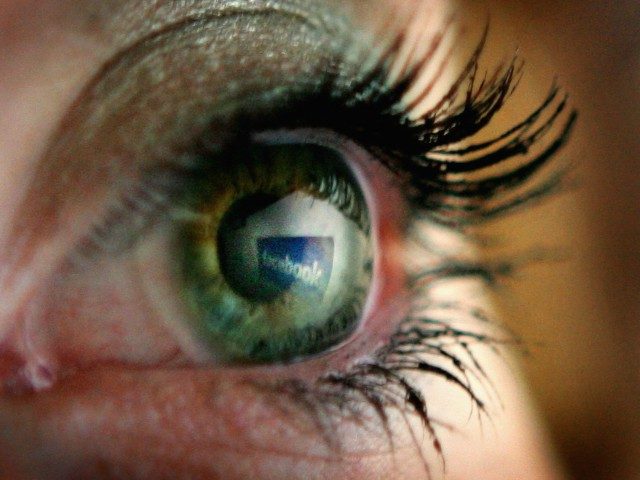Most people aren’t terribly concerned about the invasion of their privacy by social media. Living our lives for all the world to see, posting everything from what we eat for lunch to our deepest thoughts has become “normal” in our high-tech world. Facebook is even jokingly (albeit a little nervously) called “FBI” book or “Do it yourself surveillance.” What a change from only a few years ago! What would once have caused protests in the streets is now casually accepted under a false sense of safety. We are such an intelligent, technologically advanced society! What could possibly go wrong?
But speaking about the safety of allowing private information to be collected by “Smart” utility meters, whistleblower Edward Snowden says that,
“They can use this system to go back in time and scrutinize every decision you’ve ever made… derive suspicion from an innocent life and paint anyone into context of a wrongdoer.”
Anyone from a communist country or under an oppressive regime will tell you just how right Snowden is.
How many more details does Social media know about you than your Smart Meter? Today’s naivety is the equivalent of the proverbial toad slowly being cooked in warming water. Left unchecked, the rising social media censorship will give way to a communist, police state, and at that point it will be too late to do anything to stop it.
In reality, all of us are on the internet and a lot of information has already been collected about us. So, what am I suggesting we do about it? And can’t the things we write on Facebook, Twitter, Instagram and the rest also be used to spread the gospel and call attention to important things? Absolutely! But I suggest we do so prayerfully and with awareness, asking God to guide our every step. The days are fast approaching when every word spoken publicly will be turned and used against the followers of Jesus Christ. Let’s choose those words carefully, making sure they count for the kingdom.
“Be sober, be vigilant; because your adversary the devil, as a roaring lion, walketh about, seeking whom he may devour:” ( 1 Pet 5:8-11 )
Jake Anderson
Lew Rockwell | July 20, 2018
Facebook’s user data gathering prowess has been common knowledge for some time now, but one journalist’s impromptu experiment suggests it is even more ubiquitous and pervasive than previously believed. Nick Whigham, a reporter for the New Zealand Herald, decided to test out a feature on Facebook that allows users to download a ‘secret’ file showing how much personal history the company has gathered about them. What he discovered is that Facebook not only has disturbingly vast consumer profiles on all 1.4 billion daily users but also tracks the internet movement and personalities of people who don’t even log into the website.
A large part of Facebook’s business model is selling the information it collects about users to advertisers. It’s free to us because we’re the product. Its algorithms track your posts, likes, shares, and preferences, of course, but they also track your overall Internet activity — the websites you go to, your operating system, your IP address, and comments you happen to leave on random forums — via social media plugins and cookies on third-party websites. Even if you’re not logged into Facebook, your browsing behavior is tracked by secret trackers called Pixels, which are embedded on over 10,000 websites. Sorry, social media Luddites — even if you’ve never used Facebook, your online activity is tracked everytime you merely visit a website that contains Facebook ads and trackers.
Whigham downloaded his Facebook files and was stunned by the specificity of the information. The 500MB zip files contained 105 biometric facial recognition files, photo metadata that includes where and when the photo was taken, his entire iPhone contact list with names and numbers, old tenancy agreements, photo scans of broadband bills, bank transfer screenshots, and, naturally, the entire archive of his Messenger chat logs.
Whigham urges people to download their file so they can see the extent to which their privacy is being violated by what he calls “surveillance capitalism.”
How do its algorithms aggregate so much personal information? There are 98 data points Facebook uses to size you up, and some of them may stun you. They range from the square footage of your home to whether or not you’re an early adopter of technology. They also look for “users who are interested in the Olympics, fall football, cricket, or Ramadan.”
While much of the public seems to have become somewhat anesthetized to predatory data mining and privacy violations, legitimate legal challenges have finally begun to surface, and Facebook is finally facing some heat. Last month, a Belgian court ruled that the firm could not collect data on Internet users who do not have a Facebook account. Elsewhere, a federal judge recently dismissed Facebook’s motion to dismiss an Illinois class action lawsuit charging the company with violating constitutional privacy rights.
Australian Competition and Consumer Commission (ACCC) chairman Rodd Sims, whose organization is running a separate investigation into the privacy violations of multiple tech giants, including Facebook and Google, thinks it’s time for people to really consider the full ramifications of opting into services that harvest their personal information.
“Some people have asserted that consumers know what’s going on and don’t care,” Mr. Sims stated.
“I think it’s absolutely crucial we find out what consumers do know and then let’s see whether they care. My suspicion is Facebook and Google have much more personal information about people than people realise.”
To download your ‘secret’ Facebook file, click at the top right of Facebook’s navigation bar and select Settings. Then click “Download a copy of your Facebook data” beneath General Account Settings and click the green button. Then wait ten minutes and you should receive an email letting you know that “surveillance capitalism” is alive and well.
Happy hunting!
This article was first published on March 7, 2018.








